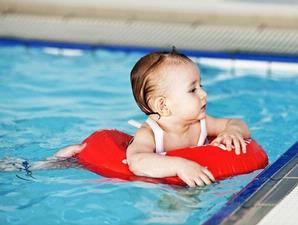
Some people believe that leaders
are born with the necessary qualities that make them successful as a leader.
While others believe that leadership, like many other similar characteristics,
can be learned and developed through life. For me, I think much of the debate
depends on how you define leadership.
Defining Leadership
Let’s assume leadership means
having an ability and desire to inspire and influence others. Based on that
definition, I can certainly see the argument that leaders are born with leading
qualities when I see my daughter using her inherent ability to influence her
little brother (and sometimes her parents) to do the things she wants them to
do.
If leadership means being courageous and willing to speak out for the betterment of those around you, I would think that leaders do not have to be born as such. I have seen people who consider themselves introverts and overall followers become successful leaders when faced with an issue they are passionate about.
If we define leadership as having atypical intelligence, creativity and/or drive, then I am back to believing that it’s a trait you’re born with, although you may or may not continue to develop that trait through your life.
Anyone Can Be a Leader
We all have areas of our lives
where we have talent and propensity for success. If this is also an area you
feel passionate about, you may exude qualities that are absent from other areas
of your life. So while you may not be a natural born leader in the strictest
sense, you can certainly overcome many obstacles and develop a desire and
ability to lead when you are inspired to do so.
Let’s look at an example.
Say you are an animal lover, and
you volunteer for an animal rescue group in your free time. The group is
planning a huge fundraiser but lacks the direction necessary to execute it
effectively. Without a leader in place, the event is destined for failure. You
may not be completely comfortable talking in front of others, making decisions
for a group and managing others, but you feel so strongly
about the need for the fundraiser
that you are willing to overcome these challenges. With the support of several
volunteers who are experienced in various areas (marketing, event planning,
community outreach, etc.), and your knowledge of the group and the background
of the fundraiser, you successfully manage the group and event. Possible?
Absolutely
Developing Leadership
- Aside from having a passion that translates into action, there are several ways you can develop your own leadership skills:
- Work on improving your communication ability, especially your ability to listen to others
- Be willing to take risks
- Network and look for ways to expand your contacts
- Focus on working and living with integrity and respect for others
- Encourage those around you to find their own leadership qualities
- Be confident in yourself and your abilities
- Know your strengths and be ready to ask for support in areas where you are lacking
- Create a vision and share your vision to inspire others
- Think positively and commit to reaching your goals
What do you think? Are leaders
born or made?



